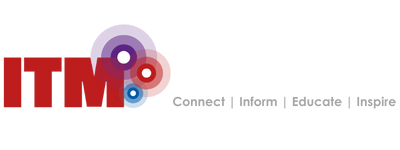The Evolving Role of a Travel Manager

The travel manager role is evolving. Buyers are aligning their programme objectives with the core business’; and organisational culture to drive value and growth. There is a demand for Travel Managers to build a programme that attracts to, and is user friendly for, their internal customers. Positioning themselves across multiple departments within the business, the travel function is a pivotal strategic leader in the company’s future direction.
Balancing cost, experience, risk, sustainability, and policy the role is reliant on proactive, transparent, and value-driven support. The expansion of the buyer’s role demands broader skills, stronger internal alignment, and deeper external partnerships.
Below summarises some additional responsibilities that buyers are navigating within their role:
Increased strategic leadership and positioning within the company
Simplified into three core areas:
• Policy strategy
• Stakeholder engagement
• Measuring the value of travel to the organisation
Increased scope across business functions
Working closely with:
• HR (traveller wellbeing, remote work needs)
• Finance (budget forecasting, ROI of travel)
• Legal/Risk (duty of care, compliance)
• Sustainability teams (carbon reporting and reduction targets)
Emphasis on traveller experience and adoption
Creating a user-friendly, flexible travel ecosystem that:
• Engages travellers
• Maintains compliance
• Assesses satisfaction
• Incorporating stakeholder feedback
Focus on holistic value, driving efficiencies and mitigating costs
Value-based KPIs include:
• Transaction time
• Programme adoption
• Employee productivity and satisfaction
• Sustainability impact
Data consumers and tech integrators
Utilising metrics to inform decisions:
• Analysing spend, trends, and traveller behaviour
• Collaborating on AI-driven tools for personalisation and efficiency
Either responsible for or feed into risk and crisis management
Influential in:
• Shaping protocols for risk
• Scenario planning
• Real time traveller tracking
Strategic partner engagement, not just a transactional service
Challenges to be addressed include:
• Internal stakeholder alignment (HR, risk, finance) as travel policies touch more departments
• Increased traveller autonomy, creating friction between control and personalisation
• Sustainability reporting and compliance becoming a central part of travel decisions
• Talent retention and duty of care, as employee experience becomes a higher priority
In summary, we are likely to see a further expansion of the current travel manager role, with wider responsibilities, more strategic expectations, and cross-functional alignment. As the remit evolves, and internal communications develop, the value of the travel function within the business will continue to rise.
Integral to a company’s ability to meet strategic objectives, travel is increasingly seen as a critical lever for business growth. Influential in talent retention (traveller wellbeing), company culture (traveller engagement) and sustainable best practice (stakeholder reporting).
While it is true that technological advances in data analytics and AI will help drive efficiencies, travel managers will place more reliance on strategic partnerships to proactively deliver on the growing expectations on a ever changing complex business travel landscape.
Read how suppliers and TMCs are adapting to support the evolving buyer role — see linked article.
Read more on TBTM – view here



